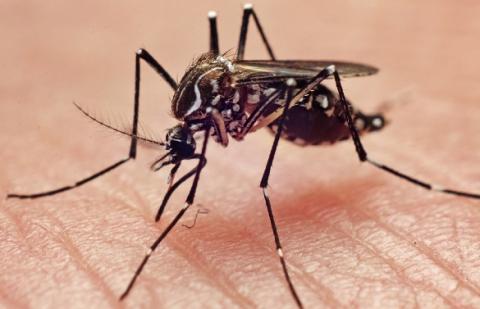
This is what the expansion of an epidemic looks like.
The Zika virus has now been detected in 67 countries, including most of the Americas. In the 50 states of the U.S., more than 2,500 cases of Zika have been reported, affecting every state except for Alaska and Wyoming. Almost all of these cases resulted from people travelling to other places, being infected with the disease, primarily as a result of mosquito bites, and then coming home. But in Florida, the epidemic is spreading due to local mosquitoes carrying the virus. These mosquitoes were first detected in a suburb of Miami, then South Beach, and are now further north in Palm Beach and in St. Petersburg, on the Gulf Coast side of the state.
And let us certainly not forget Puerto Rico, where things are much worse: As of last week, according to the Centers for Disease Control, 8,746 cases of local transmission have been reported, and it is estimated that by year’s end, one in every five of the U.S. territory’s 3.7 million residents could be infected.
Here in the continental U.S., things will get worse, for several reasons. First: mosquitoes travel north in the summer. (Just this past Sunday in Baltimore, Maryland, residents were urged to remain indoors because of intensive spraying for mosquito eradication.) And second, Louisiana and Texas pose particular threats – Louisiana, in part, because of the massive flooding that hit the Baton Rogue area. “I would not be surprised if we see cases in Texas and Louisiana, particularly now where you have the situation with flooding in Louisiana,” said Anthony Fauci, director of the CDC’s Institute of Allergy and Infectious Diseases. “There are going to be a lot of problems getting rid of standing water.”
(A side note: Zika refugees actually are beginning to emerge in the U.S. These include pregnant women in parts of Miami who will not venture outside, women who are delaying pregnancy, and this one couple who fled Miami for the Maryland suburbs after she became pregnant.)
Most people who contract the Zika virus will show few or no symptoms, and will not even know they had it. But for some, the results can be tragic and deadly. The virus can be transmitted from an infected pregnant woman to her fetus, then can cause microcephaly and other severe brain anomalies. And Zika infections in adults can result in Guillain-Barre syndrome, a life-threatening disorder in which the body’s immune system attacks nerves.
Other countries have been proactive when it comes to controlling the epidemic. Just last week, for example, when an outbreak was reported in Singapore among foreign workers, its Asian neighbors aggressively stepped up. Indonesia installed thermal scanners at is main airports and ports such as Batam, an island near Singapore. Malaysia began health checks for people entering Johor Bahru, a city where somewhere around 200,000 people pass through daily to and from Singapore.
And the U.S.? It is true that although some local officials are maintaining vigilance and federal officials are taking some necessary steps (for example, making sure our nation’s blood supply is safe), the fact is that Congress is sitting on its hands and dawdling while the epidemic spreads through Florida and prepares to expand through the Gulf Coast states and perhaps up the east coast. It was more than six months ago – Feb. 8, to be precise – when President Obama called upon Congress to approve funds for Zika response.
On Tuesday, the Coalition on Human Needs asked national groups to sign a letter to members of Congress urging them to address a triad (triage?) of emergencies when they return to Washington, D.C. next week: Fully fund Zika, address the problem of lead-contaminated water in Flint, Michigan and elsewhere, and confront the epidemic of opioid addiction in the U.S. (to say nothing of funding government beyond Sept. 30). Your national group can sign the letter here.
Zika is here, and it is spreading. Birth defects are happening. It is well past time for Congress to step up.
This post was originally published on the Coalition on Human Needs' blog, Voices for Human Needs. Receive similar articles in your inbox by subscribing today, and follow CHN on Facebook and Twitter.



The views and opinions expressed in this post are those of the author(s) and do not necessarily reflect those of MomsRising.org.
MomsRising.org strongly encourages our readers to post comments in response to blog posts. We value diversity of opinions and perspectives. Our goals for this space are to be educational, thought-provoking, and respectful. So we actively moderate comments and we reserve the right to edit or remove comments that undermine these goals. Thanks!